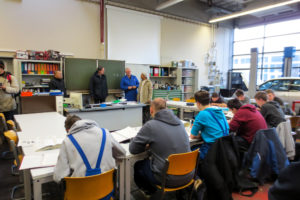
Capacity Development of Employees and Employers via Information and Communication Technologies (ICT)
In Turkey, in common with all other countries, both employers and employees need to be aware of, and be able to use, the latest ICT tools in the workplace to improve the efficiency and competitiveness of their businesses and take best advantage of personal development opportunities. This project,

Technical Assistance for Promoting Registered Employment
Unregistered employment remains one of the critical concerns and significant challenges of the Turkish labour market. Even though recent years have seen a downward trend in unregistered employment, a substantial portion of Turkey’s workforce is still employed without being registered with the social security system. In this regard,

Technical Assistance for Establishment of Rize Tea Research and Application Centre
Rize has the best reserves of tea in Turkey, however, the SMEs in the Tea region is not qualified enough to compete. Hence, the general purpose of the project was to increase the competitiveness of the tea sector concentrated in Rize and its surroundings. More specifically, it wanted

Skills Development and Innovation Support Project
The labour market demands quick responses to changes in the market and the demographic situation. Within this scope, the assignment aimed to provide technical assistance to the Government of Macedonia and the Ministry of Education and Science (MOES) to reform the 4-year Secondary Technical and Vocational Education and

Technical Assistance for the Operation of “Hand Made in Hatay”
However, Antakya craftspeople and businesses can offer original designs and fine workmanship and can draw on a long master-apprentice tradition and rich multicultural history, the city has not lived up to its potential. This initiative, the Hand Made in Hatay project is part of a larger initiative, financed

Technical Assistance for Promoting Decent Future of Work Approach with a Focus of Gender Equality
The objective of the contract is to strengthen the institutional capacity of the Department of Employment Policies (DEP) of the General Directorate of Labour (DG Labour) in the MoLSS, its relevant stakeholders, social partners and NGOs within the scope of decent future of work approach with a focus

